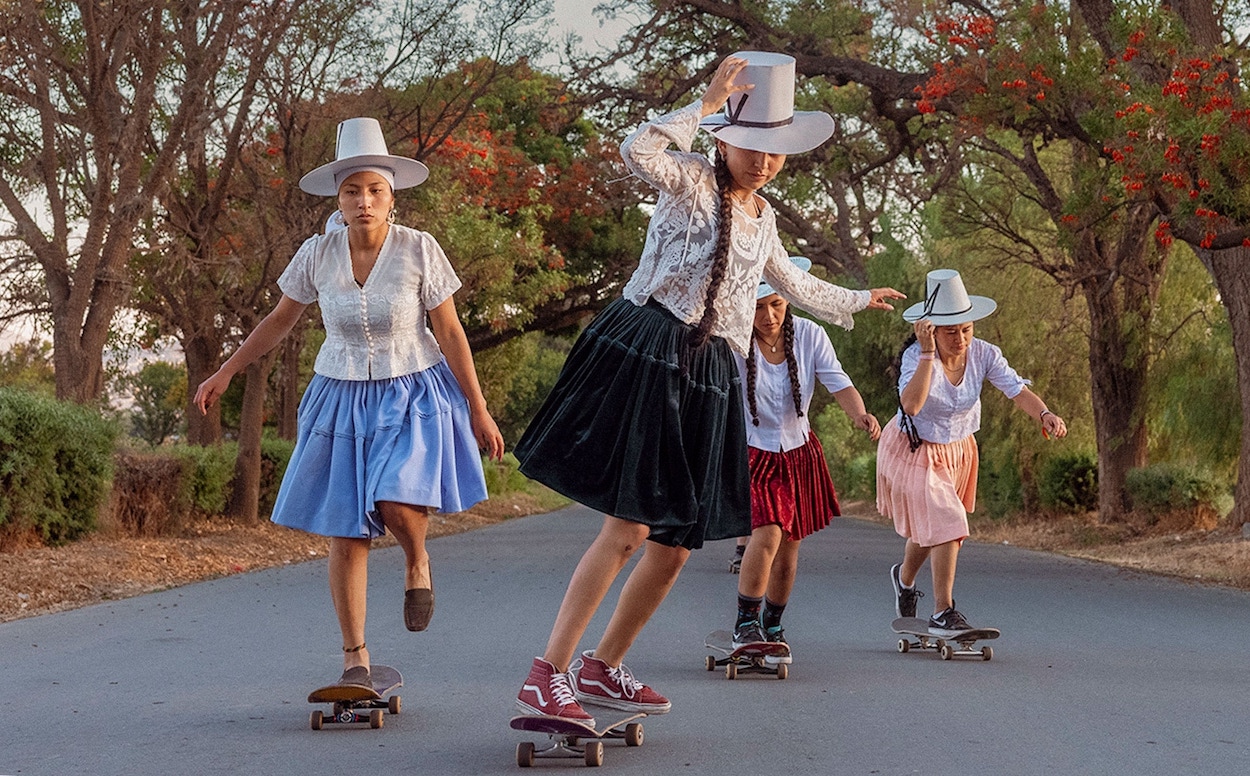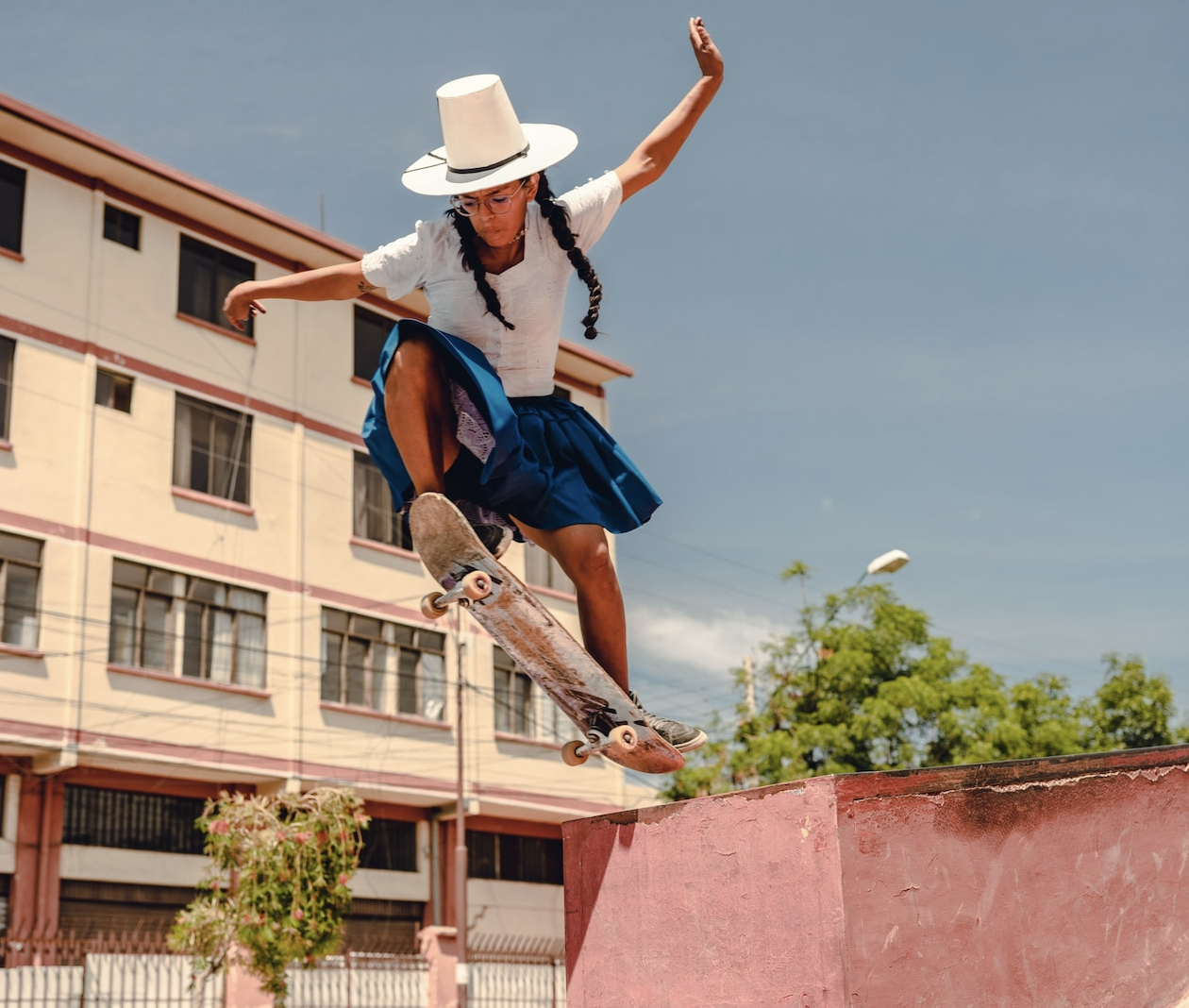
Indigenous Bolivian Skateboard Collective Battle Discrimination
February 11, 2022
ImillaSkate is a female collective of skateboarders in the Bolivian city of Cochabamba who wear their ancestral clothing to challenge discrimination (‘Imilla’ translates to ‘young Indigenous woman’). The group skate in Bolivian polleras, an Indigenous piece of clothing which was once used to stigmatize and discriminate, but has now evolved into a symbol of resistance.
The pollera skirts trace back to the 16th century during the time of Spanish colonial conquests. Originally used by colonial rulers, the bulky voluminous skirt became an easy way to identify the Native population. The skirts were eventually adopted as part of traditional Andean attire for Indigenous Aymara and Quechua women and is now gaining a new identity with ImillaSkate who are trying to remove the historic stigma.
"The polleras are very valuable to me,” Deysi Tacuri López, an ‘imilla’, told National Geographic. "We ourselves have decided to get to know our culture and our identity. We have decided to revalue our clothing and encourage new generations."
Over the three years since its inception, the group has grown to include nine skaters who wear the polleras only when they skate. Along with training for local tournaments and empowering other women, they released a short documentary last fall showing their determination to break down barriers in unique skateboard attire.

Daniela Santiváñez founded the group along with two other friends and explains that skateboarding has grown in popularity in the country. “The idea is to encourage more girls to skate through the message of inclusion for all.”
For the ‘imillas’’, the polleras reflect the heroism and determined participation of the women in the struggle for freedom and independence. “The Cholas [Bolivian women who use traditional clothing] of Cochabamba are characterized by their hard work, their daily struggle, their sacrifice, love and selflessness to educate and raise their children. Women who contribute to the economy, politics, education, culture, science and knowledge,” explained the group through a statement on their social networks.
Using the skateboard as a vehicle to drive change, the group not only challenges discrimination but also cultural and gender stereotypes. Ayde Choque, a member of the group, told EFE: “It is a tough sport, it is extreme, most are men, but women have to break these chains, these stereotypes and show that we can skateboard too. Being a man or a woman is not a limit,”
ImillaSkate’s are continuing to popularize and encourage skateboarding amongst other women and girls, whilst reconciling cultural differences and century-old stereotypes of Indigenous women along the way. A few members of the group are training for the national skateboarding competition this November.
Source: National Geographic (All images used in this piece are attributed to National Geographic)
US Major Leagues Celebrate Black Changemakers, History & Communities
Black History Month in Focus